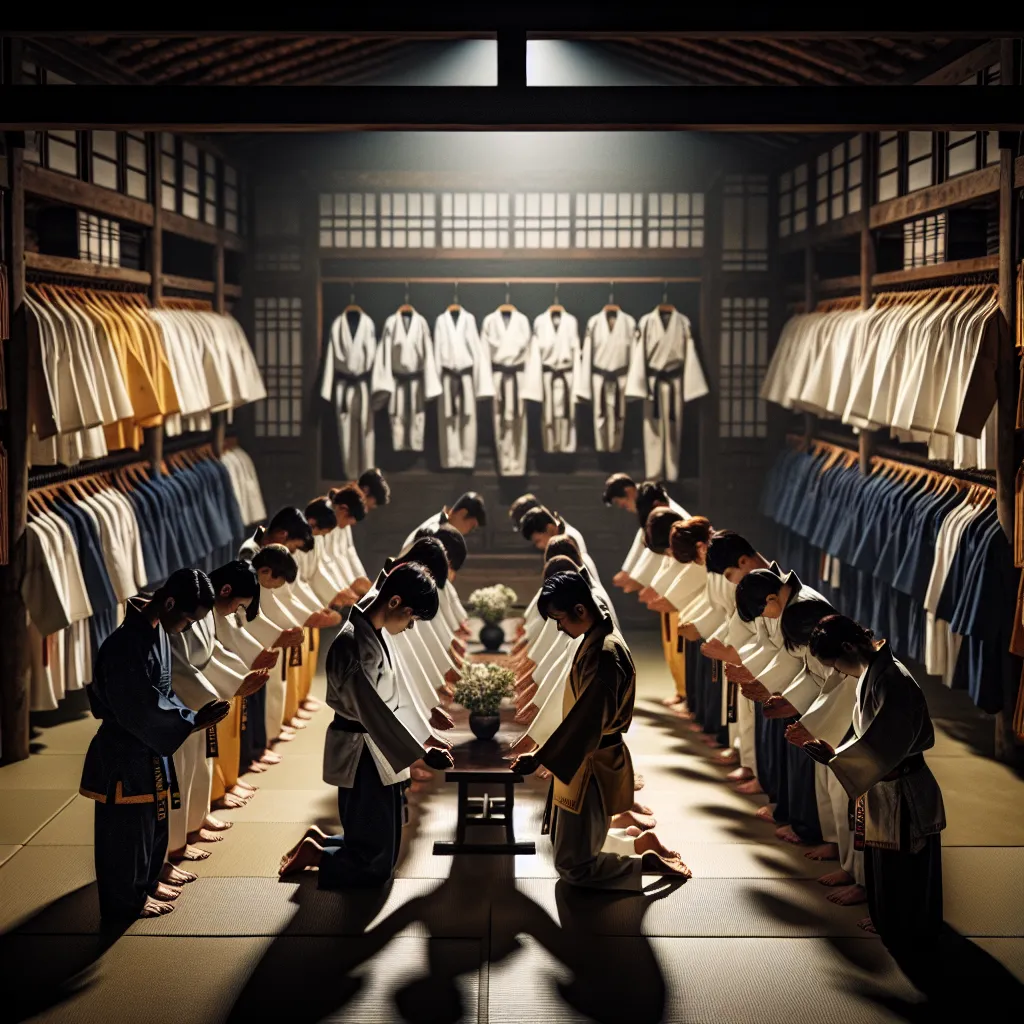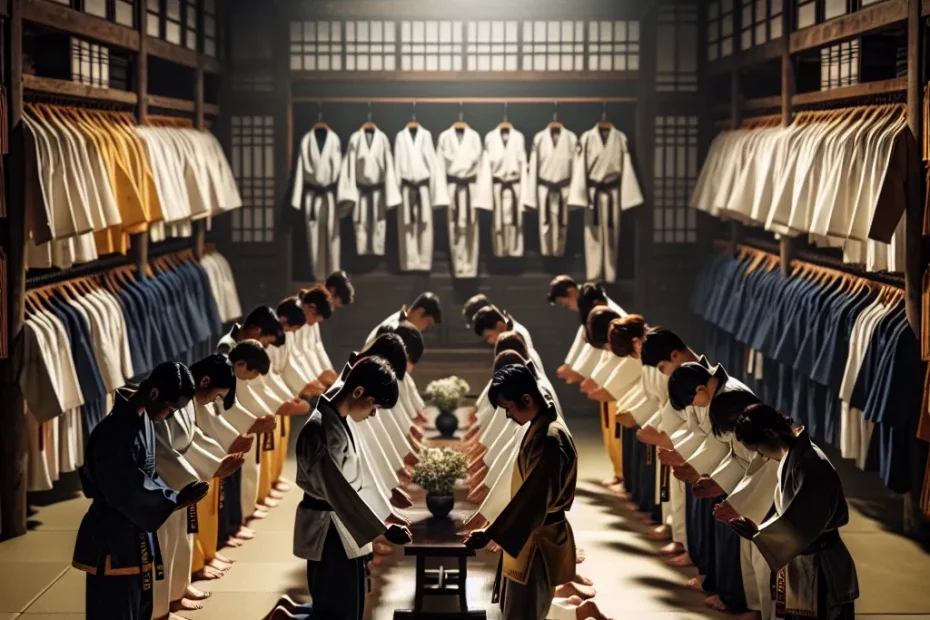Korean traditional martial arts carry a rich heritage that extends back centuries, embodying values of discipline and respect. The roots of these martial arts run deep, intertwined with the cultural fabric of Korea. Discipline is a cornerstone of training in Korean martial arts, instilling focus, perseverance, and self-control in practitioners. Beyond physical techniques, these arts emphasize mental fortitude and character development. Respect is another fundamental aspect, teaching students to honor their instructors, opponents, and traditions. By upholding these values, practitioners not only enhance their martial skills but also cultivate a sense of respect for others and themselves. The cultural significance of Korean martial arts lies not only in their physical prowess but also in the values they impart to individuals and society.

The Roots of Korean Traditional Martial Arts
Korean traditional martial arts, known as “muye” in Korean, have a rich and storied history that dates back centuries. The practice of martial arts in Korea can be traced back to as early as the Three Kingdoms period (57 BC – 668 AD), where warriors were trained in combat skills to defend their kingdoms. 🥋
Origin of Taekwondo
One of the most well-known Korean martial arts is Taekwondo, which originated in the ancient Korean kingdom of Goguryeo. Taekwondo, with its emphasis on kicking techniques and forms, has become a global phenomenon, with millions of practitioners worldwide. 🌎
Introduction of Hapkido
Another prominent Korean martial art is Hapkido, which focuses on joint locks, throws, and strikes. Hapkido was developed in the 20th century by combining traditional Korean martial arts techniques with influences from Japanese Aikido. 💪
Philosophy of Korean Traditional Martial Arts
The philosophy behind Korean traditional martial arts goes beyond physical techniques; it emphasizes discipline, respect, and self-improvement. Practitioners are not only trained in combat skills but also in the values of integrity, perseverance, and indomitable spirit. 🌟
In addition to Taekwondo and Hapkido, there are many other traditional martial arts in Korea, each with its own unique techniques and philosophies. These arts have been passed down through generations, preserving the rich cultural heritage of Korea. 🇰🇷
Today, Korean traditional martial arts continue to thrive, with schools and training centers around the world. The practice of these arts not only promotes physical fitness and self-defense skills but also instills valuable life lessons in practitioners of all ages. 🌟
In conclusion, the roots of Korean traditional martial arts run deep, connecting the past with the present and preserving a legacy of discipline, respect, and cultural heritage. Through dedicated practice and adherence to traditional values, practitioners of Korean martial arts embody the spirit of perseverance and excellence. 🥋
The Importance of Discipline
In the realm of Korean traditional martial arts, discipline stands as the cornerstone of excellence, shaping practitioners into not just skilled fighters, but also individuals of unparalleled character. Discipline, defined as the practice of training people to obey rules or a code of behavior, is ingrained in every aspect of training, from the rigorous physical exercises to the mental fortitude required to master techniques.
The Commitment to Excellence
The adherence to strict training regimens is a testament to the commitment and dedication of martial artists, with many spending countless hours honing their skills to perfection. The discipline instilled in practitioners fosters a sense of responsibility, respect, and self-control, essential qualities that extend beyond the training hall into everyday life.
The Culture of Respect
Respect for one’s instructors, peers, and the art itself is a fundamental principle deeply rooted in the practice of Korean martial arts. The bowing rituals, a symbol of humility and respect, serve as a constant reminder of the importance of showing reverence to those who have come before and those who continue to guide and inspire. This culture of respect not only cultivates a harmonious training environment but also builds strong bonds of camaraderie among practitioners.
The Mental Conditioning
Furthermore, discipline in Korean martial arts is not just about physical training but also about mental conditioning. The focus, concentration, and perseverance required to master complex techniques demand a high level of mental discipline. Practitioners are trained to remain calm under pressure, to think strategically, and to adapt to ever-changing circumstances, skills that are invaluable both on and off the training mat.
In a world where instant gratification and shortcuts are often sought after, the practice of Korean traditional martial arts serves as a beacon of discipline, reminding individuals of the value of hard work, perseverance, and resilience. It is through the rigorous training, the unwavering commitment, and the unyielding discipline that practitioners are able to unlock their full potential and achieve greatness in both their martial arts journey and in life.
In conclusion, the importance of discipline in Korean traditional martial arts cannot be overstated. It is the foundation upon which excellence is built, the guiding principle that shapes not just skilled fighters, but individuals of integrity, respect, and unwavering determination. As practitioners continue to walk the path of martial arts, may they always remember that true mastery is not just about physical prowess, but about the discipline of the mind, body, and spirit. 🥋👊🏽
Teaching Respect in Martial Arts
In the realm of martial arts, respect is not just a mere concept but a fundamental principle that shapes the very core of traditional practices. The heritage of Korean traditional martial arts, such as Taekwondo and Hapkido, places a strong emphasis on instilling discipline and respect in practitioners from the very beginning of their training. 🥋
The Essence of Respect in Martial Arts
Respect in martial arts is not limited to bowing before entering the training hall or addressing instructors with proper titles. It goes far beyond mere gestures and becomes a way of life for martial artists. Respect in martial arts is about honoring the traditions, the lineage of masters, and the values that have been passed down through generations. It is about recognizing the wisdom and experience of those who came before and showing gratitude for the knowledge they have imparted. 🙇♂️
Respect in Training
In Korean traditional martial arts, respect is ingrained in every aspect of training. From the meticulous performance of forms to the rigorous practice of techniques, students are taught to approach their training with humility and reverence. The discipline required to master martial arts is not just physical but also mental, as practitioners learn to control their emotions and ego, fostering a sense of respect for themselves and others. 🧠💪
Respect Beyond the Dojang
Moreover, respect in martial arts extends beyond the confines of the training hall. It influences how practitioners carry themselves in their daily lives, promoting values such as integrity, courtesy, and compassion. The respect learned through martial arts becomes a guiding force that shapes not only one’s actions but also one’s character, leading to a more harmonious and respectful society. 🌟
Cultivating a Mindset of Honor
In essence, teaching respect in martial arts is not just about following rules or traditions; it is about cultivating a mindset of honor and integrity that permeates every aspect of a practitioner’s life. By embracing the principles of respect, martial artists not only become skilled fighters but also exemplary individuals who contribute positively to their communities. 🌺
The Power of Respect
Through the teachings of respect in Korean traditional martial arts, practitioners learn that true strength lies not in physical prowess alone but in the ability to show respect, both to oneself and to others. It is this profound understanding of respect that sets Korean martial arts apart and continues to inspire generations of practitioners worldwide. 🌏
A Brighter Future
In conclusion, the heritage of Korean traditional martial arts serves as a beacon of light, illuminating the path towards a more respectful and harmonious society. By teaching respect in martial arts, we not only preserve the rich traditions of the past but also pave the way for a brighter future built on the pillars of discipline, honor, and respect. Let us continue to uphold these timeless values and pass them on to the next generation of martial artists. 🌟🥋
Cultural Significance of Korean Martial Arts
In the realm of martial arts, Korean traditional martial arts stand out as a testament to the rich cultural heritage and historical significance of Korea. With a history dating back centuries, these martial arts forms have not only been a means of self-defense but also a way to cultivate discipline, respect, and inner strength. 🥋
Renowned Korean Martial Art: Taekwondo
One of the most renowned Korean martial arts is Taekwondo, which has gained global popularity for its dynamic kicks, powerful strikes, and emphasis on mental fortitude. Taekwondo, with its roots in ancient Korean martial arts such as Taekkyeon and Subak, embodies the spirit of perseverance and indomitable will. 🌟
Prominent Korean Martial Art: Hapkido
Another prominent Korean martial art is Hapkido, known for its fluid techniques that focus on redirecting an opponent’s force. Hapkido practitioners learn to use an attacker’s energy against them, showcasing the beauty of harmonizing with one’s surroundings. 🥋
Values and Principles
The cultural significance of Korean martial arts extends beyond physical combat. These disciplines emphasize values such as respect for one’s opponent, humility, and self-control. Practitioners are not only trained in combat skills but also in the art of courtesy and honor. 🙏
Preservation of Tradition
Moreover, Korean martial arts serve as a bridge to connect the past with the present, preserving ancient traditions and techniques that have been passed down through generations. The intricate forms and patterns in martial arts forms reflect the deep-rooted history and symbolism of Korean culture. 🎎
Modern Relevance
In modern times, Korean martial arts continue to thrive, with schools and academies spread across the globe. The practice of these traditional arts not only promotes physical fitness and self-defense skills but also instills valuable life lessons such as perseverance, integrity, and mental resilience. 💪
Community and Camaraderie
Through the practice of Korean martial arts, individuals not only hone their physical abilities but also cultivate a sense of community and belonging. The shared experience of training and learning together fosters camaraderie and mutual respect among practitioners. 🌏
In conclusion, the cultural significance of Korean martial arts lies not only in their physical techniques but also in the values and principles they embody. These martial arts forms serve as a beacon of tradition, discipline, and respect, carrying forward the legacy of Korea’s ancient warriors and sages. 🌟
In conclusion, Korean traditional martial arts carry a rich heritage of discipline and respect that has been passed down through generations. The roots of these martial arts run deep in Korean culture, emphasizing not only physical strength but also mental fortitude. The importance of discipline in martial arts cannot be overstated, as it instills valuable life skills such as perseverance and self-control. Furthermore, the teaching of respect within martial arts serves to cultivate a sense of humility and honor in practitioners. Overall, the cultural significance of Korean martial arts lies in their ability to shape individuals into not just skilled fighters, but also respectful and disciplined members of society.
